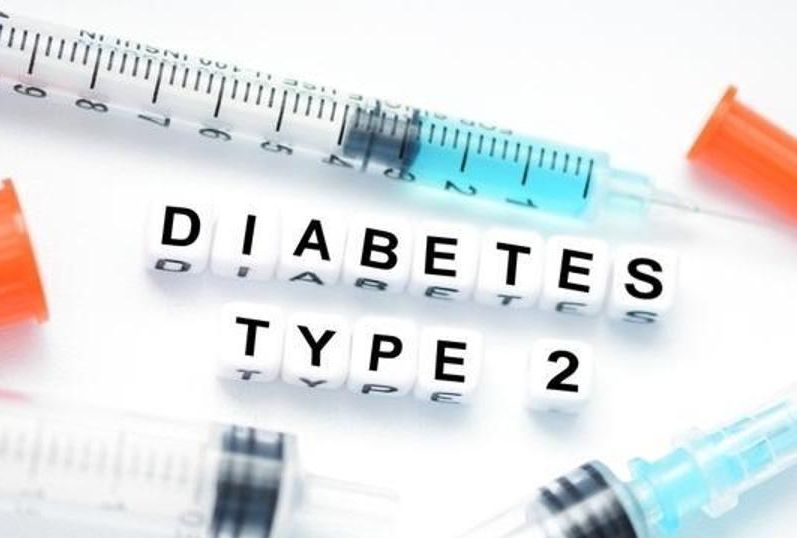
Approximately 1.2 million Australians have been diagnosed with diabetes, 90 % of which are type 2 [1].
Interestingly and unlike type 1, the literature to shows a strong link of type 2 cases with lifestyle. The cost of type 2 diabetes is close to $6 billion a year [2] and consequently there is an abundance of research being conducted of late, aiming to identify associated risk factors.
Too many of these studies are pointing to sugar for it to be ignored.
There’s no denying that the rate of type 2 diabetes is climbing, which is surely linked to the obesity epidemic. More than 60% of Australians are now obese [3], however type 2 cases are not exclusive to this weight category [4].
Even people within the “healthy weight” range can be diagnosed and can even have twice the risk of complications than those diagnosed who are obese [5].
Experts suggest that for every four confirmed diagnoses, a fifth person is living with diabetes without knowing it. Even more alarming is that while historically, diagnosis was only seen in middle age + adults, the rate of diagnosis in children and adolescents is rising [6].
So, what’s changed? Australia’s latest Health Tracker, conducted in 2016 [7] sums it up as not enough exercise, too much processed food. And sugar, lots and lots of sugar.
The link between type 2 diabetes and sugar consumption is strengthening.
Despite the hundreds of genetic variants of type 2 and thousands of individual risk factors, sugar is being pinpointed as the catalyst for type 2 in the science more than ever before and at an ever increasing rate.
The research indicates that repetitive and frequent consumption of sugar and processed carbohydrates can lead to a condition known as insulin resistance. This condition arises when the body stops responding to the hormone insulin, which initiates the metabolism of glucose (sugar) into energy. Insulin resistance is the precursor to type 2 diabetes [8].
Take a look at some of the larger studies that link sugar consumption (especially that of sugary drinks) to type 2 diabetes:
- Data from over 300,000 people (the largest study of its kind) found that the risk of type 2 diabetes can be increased by 26% via just one to two serves of soft drink a day [9].
- A strong connection between the development of metabolic syndrome (a precursor of type 2 diabetes) and fructose consumption from industrialised foods was found in a meta-analysis of more than 3,000 studies [10].
- More than two 200ml soft drinks a day made subjects 2.4 times more likely to develop type 2 diabetes in an analysis of 2,874 adults [11].
- A 14-year study found that adults are 46% more likely to develop prediabetes than low or non-consumers by consuming just one can of sugary soda per day [12].
- The prestigious journal Lancet Diabetes and Endocrinology indicates that 300,000 new cases of diabetes in the UK can be prevented in 20 years by lowering sugar in drinks by 40% [13].
So, will quitting sugar help prevent type 2 diabetes?
According to Diabetes Australia, “the risk of developing type 2 diabetes can be reduced by up to 58% by maintaining a healthy weight, being physically active and following a healthy eating plan”.
Can quitting sugar help manage type 2 diabetes?
While the current GP guidelines say eliminating all sugars is unnecessary (and I completely agree with this), the ultimate requirement is “a sensible, balanced eating plan” [14].
Sounds like Just Eat Real Food to me!… More on this another time.
**Note, diet is a not a replacement for individual medical advice! If you’ve been diagnosed with type 2 diabetes, see a doctor before making significant changes to your diet or lifestyle.
References
- Diabetes Australia (2015), Type 2 Diabetes, (https://www.diabetesaustralia.com.au/type-2-diabetes [Accessed 15 Aug 2017].
- Baker IDI, (2012), diabetes: the silent pandemic and its impact on Australia, https://static.diabetesaustralia.com.au/s/fileassets/diabetes-australia/e7282521-472b-4313-b18e-be84c3d5d907.pdf [Accessed 15 Aug 2017].
- Australian Government NHMRC, (2010), Obesity and Overweight, https://www.nhmrc.gov.au/health-topics/obesity-and-overweight (Accessed 15 Aug 2017].
- Parnell, S, (2016), Deadly but preventable type 2 diabetes on the rise in Australia, The Australian, http://www.theaustralian.com.au/life/health-wellbeing/deadly-but-preventable-type-2-diabetes-on-the-rise-in-australia/news-story/932e36469eff636108e70be7617e026d [Accessed 15 Aug 2017].
- LeWine, H, (2012), Diabetes can strike—hard—even when weight is normal, Harvard Health Publications, https://www.health.harvard.edu/blog/diabetes-can-strike-hard-even-when-weight-is-normal-201208085121 [Accessed 15 Aug 2017].
- National Diabetes Service Scheme, (2015), Type 2 Diabetes in Children & Adolescents, (https://www.ndss.com.au/type-2-diabetes-in-children-adolescents-information-sheet [Accessed 15 Aug 2017].
- Victoria University (2016) Australia’s Health Tracker. Melbourne. Australian health Policy Collaboration, https://www.vu.edu.au/australian-health-policy-collaboration/publications#goto-australias-health-tracker=1 [Accessed 15 Aug 2017].
- AIHW, (2017), What is diabetes?, Australian Government, http://www.aihw.gov.au/what-is-diabetes/ [Accessed 15 Aug 2017].
- Vasanti S. Malik, SCD, Barry M. Popkin, PHD, George A. Bray, MD, Jean-Pierre Després, PHD, Walter C. Willett, MD, DRPH and Frank B. Hu, MD, PHD, (2010), Sugar-Sweetened Beverages and Risk of Metabolic Syndrome and Type 2 Diabetes, Diabetes Care, http://care.diabetesjournals.org/content/33/11/2477 [Accessed 15 Aug 2017].
- Kelishadi R, Mansourian M, Heidari-Beni M, (2014), Association of fructose consumption and components of metabolic syndrome in human studies: a systematic review and meta-analysis, PubMed, https://www.ncbi.nlm.nih.gov/pubmed/24698343 [Accessed 15 Aug 2017].
- Whiteman, H, (2016), Diabetes risk doubles with more than two soft drinks day, Medical News Today, https://www.medicalnewstoday.com/articles/313612.php [Accessed 15 Aug 2017].
- News Medical, (2016), Higher sugar-sweetened beverage intake, not diet soda linked to risk of developing prediabetes, https://www.news-medical.net/news/20161109/Higher-sugar-sweetened-beverage-intake-not-diet-soda-linked-to-risk-of-developing-prediabetes.aspx [Accessed 15 Aug 2017].
- Yuan Ma, Feng J He, PhD, Yunjian Yin, BSc, Kawther M Hashem, MSc, Prof Graham A MacGregor, FRCP, (2016), Gradual reduction of sugar in soft drinks without substitution as a strategy to reduce overweight, obesity, and type 2 diabetes: a modelling study, The Lancet, http://www.thelancet.com/journals/landia/article/PIIS2213-8587(15)00477-5/abstract [Accessed 15 Aug 2017].
- The Royal Australian College of General Practitioners (2016), General practice management of type 2 diabetes: 2016–18, East Melbourne, Vic: RACGP, 2016.
